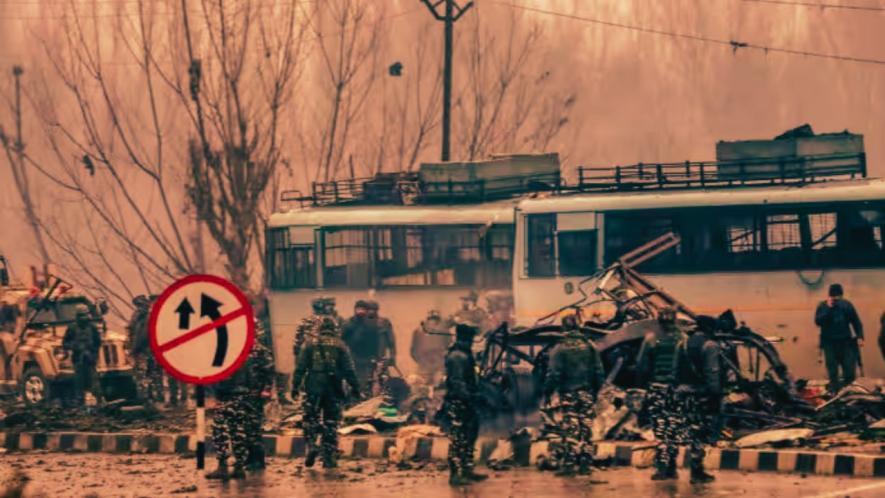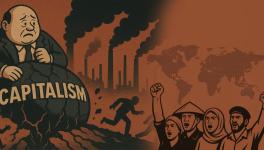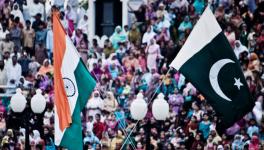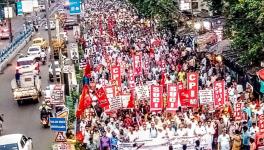Defeating Terror: A Complex Rigmarole

Image Courtesy: PTI
The Pahalgam attack on tourists on April 22, 2025, led to a chain reaction leading to India’s attack on the bases of terrorist violence in Pakistan. With a ceasefire in place now, it is time to think about dealing with this cancerous phenomenon in society.
Surely, the phenomenon of terror has been more in the news after the 9/11, 2002, twin tower attacks in the US, leading to the death of over 2,000 people. The term ‘Islamic terrorism’ was coined by the US media and picked up by the world, associating Islam with terrorism.
While acts of terror have been defined, defining terrorism is not easy and no such definition could be articulated even by the United Nations’ bodies working on this.
As far as India is concerned, it has been witnessing regular killings in Kashmir by the insane acts of brain-washed Muslim youth. India saw the 26/11 2008 attack in Mumbai in which nearly 200 people lost their lives. Interestingly, Hemant Karkare, the then Anti- Terror Squad chief of Maharashtra, was killed during this attack.
Parallel to this, we also witnessed the acts of terror beginning in Nanded (2006) and later in four major places-- Malegaon, Ajmer, Mecca Masjid (Hyderabad) and Samjhuata Express.
For the Malegaon-related blast, the National Investigation Agency (NIA) is demanding the death penalty for Sadhvi Pragya Singh Thakur, a Bharatiya Janata Party (BJP) member of Parliament, whose motorcycle was the instrument used in Malegaon blasts. Along with her, Lt Col Purohit is also being tried and other names that came into picture were those of Swami Aseemanand, Major (retd) Upadhyay and several persons with affiliation to Hindutva politics.
Read Also: Pahalgam Tragedy: Indian Delegations Abroad
As India faces these acts of terror, it is imperative that we give a serious thought to the root of global terror and its impact on India. While the security measures undertaken at the moment are being questioned, as earlier Pulwama and now the Pahalgam terror attacks have shown chinks in our armour, there are some deeper issues on which India needs to collaborate with global agencies.
At one level, the terrorist groups that are affecting India have bases in Pakistan. The plight of Pakistan is pathetic, as it is not only an agency of acts of terror; it is also the victim of this dastardly phenomenon.
The present terror acts are taking place in Kashmir. The major actors involved in this tragedy in Kashmir are offshoots of terror groups that came up in the aftermath of the American project of countering the Soviet occupation of Afghanistan.
As the US was in no position to take on the Russian army’s presence in Afghanistan, it promoted madrasas in Pakistan that gave training to Muslim youth; Taliban and its later clones was the result.
Ugandan author Mahmood Mamdani, in his well-researched book, Good Muslim Bad Muslim, tells us how the syllabus of these madrasas was prepared in Washington. Communists were presented as ‘kafirs’. Killing kafirs was propagated as the goal and in the achievement of this goal, even if one lost life, jannat (paradise) was assured. America spent $8,000 million on these madrasas and provided them with 7,000 tons of armaments, which included the latest stinger missiles.
The same phenomenon of terror, promotion of which was the imperialist ambition of the US in controlling the oil wealth of West Asia, assumed dangerous proportions, creating havoc in the region. Just to remind readers, it was this era when author Samuel Huntington’s Clash of Civilizations thesis was ruling the roost. To the global good fortune, Kofi Annan, then UN Secretary General, appointed a high-level committee to examine ‘Clash of Civilization’ in particular.
This committee came out with a report, Alliance of Civilizations, which concluded that the world had progressed due to the alliance of civilisations. This report did not get projection from various quarters. The ‘Islamophobia’ planted by the acts of terror and the negative role of the American media was so intense, that at places copies of the Quran were burnt.
The terror phenomenon turned into a Frankenstein’s monster. While it played its negative role at multiple levels, it turned into destruction recklessly. Pakistan has also been a victim of this phenomenon. One recalls Pakistan’s former Prime Minister Benazir Bhutto being killed in one such attack by terror groups.
The GTI (Global Terror Index) is a composite measure made up of four indicators -- incidents, fatalities, injuries and hostages -- to measure the impact of terrorism, with a five-year weighted average. In this, Pakistan is 2nd and India 14th . Meaning, the acts of terror have tormented Pakistan much more than India.
No wonder that the victims of terrorism are higher in Pakistan, as it is the madrasas in Pakistan where training was given. While India has to ensure that no acts of terror take place in the country, there is also a need to understand that this cancer of terror, sown by imperialist ambitions for control over oil, can be eradicated only by cooperation at the global level.
The recent news is that “…Pakistan—a country repeatedly labeled as the "global exporter of terror"—has been appointed to chair the United Nations Security Council's Taliban Sanctions Committee in 2025. Simultaneously, it will serve as vice-chair of the Council's Counter-Terrorism Committee.” Surely, this tells a complex tale.
There are many factors controlling the policies of Pakistan, the emerging angle of China is yet another. While Pakistan needs to be held accountable, there is also a need to ensure that it is brought to the discussion table to get rid of this scourge. To prevent terror attacks in India all steps in promoting democracy in Kashmir are the need of the hour.
We are at present facing multiple dilemmas. The progress of Kashmir is static despite its vast potential. Pakistan needs to engage at multiple levels to ensure the eradication of the cancerous growth of terrorist violence. At a subtle level, there is a propaganda associating Islam, Muslims with the phenomenon of terror. This understanding lacks a deeper understanding of the peculiar circumstances in which the American designs to control over West Asian oil resources has operated and led to the present impasse.
Symptomatic countering of this dastardly phenomenon needs to be added on with the deeper analysis of the global scenario, where dominant American policies have played a ruinous role in promoting this phenomenon and is now washing its hands off it.
The writer is a human rights activist, who taught at IIT Bombay. The views are personal.
Get the latest reports & analysis with people's perspective on Protests, movements & deep analytical videos, discussions of the current affairs in your Telegram app. Subscribe to NewsClick's Telegram channel & get Real-Time updates on stories, as they get published on our website.
























